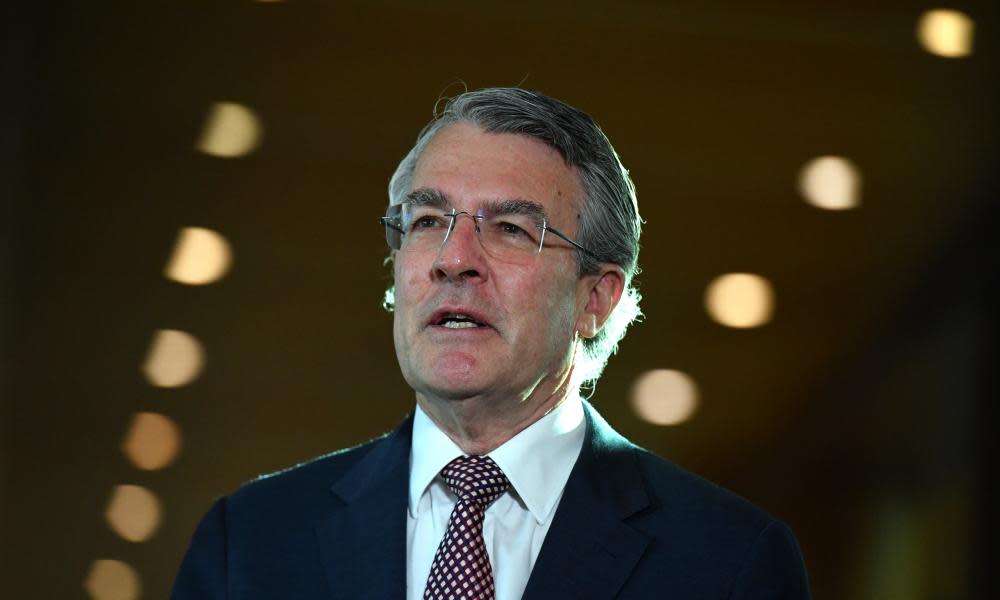Mark Dreyfus flags Bernard Collaery case as priority if appointed attorney general

Labor’s Mark Dreyfus has flagged he will seek an urgent briefing from the attorney general’s department on the handling of the Bernard Collaery case, should he be appointed Australia’s first law officer.
Dreyfus, who was shadow attorney general in opposition, has previously criticised the commonwealth’s conduct of the prosecution, saying the delays and secrecy appeared to be an “affront to the rule of law”.
Dreyfus has taken care not to comment on the substance of the case against Collaery, a lawyer who is accused of working with his client, intelligence officer Witness K, to expose Australia’s bugging of impoverished ally Timor-Leste during negotiations over oil and gas in the Timor Sea.
Related: Government successfully blocks Bernard Collaery from obtaining documents on legality of spy mission
But he has criticised the four-year delay, the significant secrecy over parts of proceedings and the ballooning cost to taxpayers.
“I haven’t seen a cogent explanation as to why that’s in the public interest,” he told Perth radio earlier this month.
“If I am fortunate enough to be appointed attorney general in the Albanese Labor government, I would seek an early briefing from my department on a number of matters relating to the prosecution of Mr Collaery,” Dreyfus told Guardian Australia on Monday.
Collaery was alleged to have unlawfully disclosed information about an Australian Secret Intelligence Service (Asis) operation to bug the Timor-Leste government offices in 2004, as Australia was bartering with the fledgling country over access to oil and gas reserves in the Timor Sea.
Collaery was acting as the approved lawyer for Witness K, an experienced Asis officer, and helped Timor-Leste bring a case in the international courts alleging Australia had not acted in good faith during the talks, rendering the maritime treaty brokered by the two nations void.
Collaery was charged in 2018, after then attorney general Christian Porter gave the Commonwealth Director of Public Prosecutions his consent. The case has since been bogged down in battles over secrecy and access to documents.
Labor’s criticisms of the government’s handling of the case escalated during the campaign, though it has stopped short of saying it would withdraw the consent given by Porter.
Earlier this month, speaking to the Australian Bar Association’s conference, Dreyfus said the “very manner in which the government has sought to conduct the prosecution appears to me to be an affront to the rule of law”.
“There have been some 50 preliminary hearings to date, with well over $4m spent by the commonwealth alone, and still there is no trial date for Mr Collaery,” he said.

 Yahoo Movies
Yahoo Movies 
